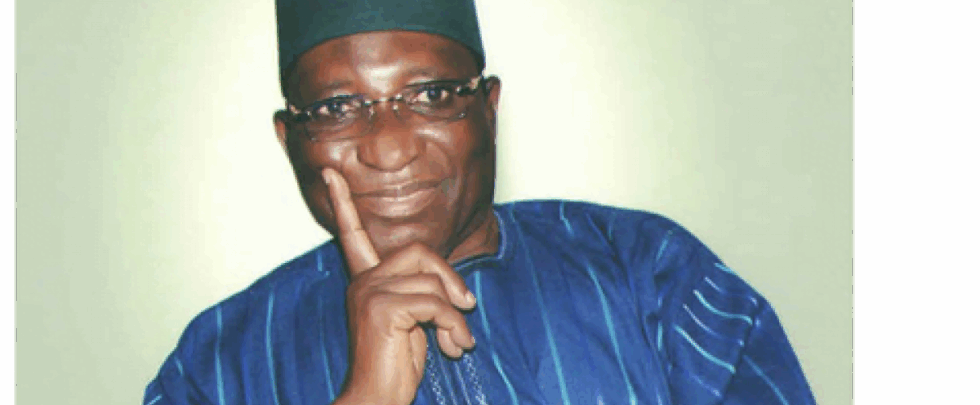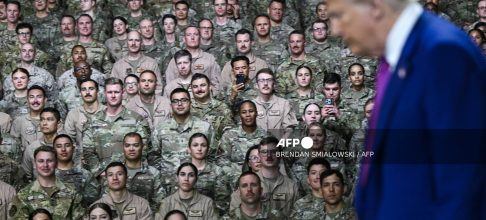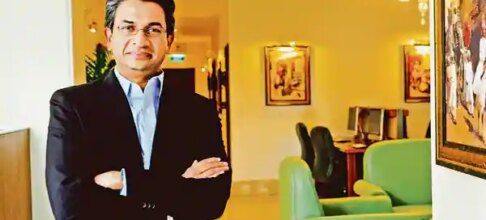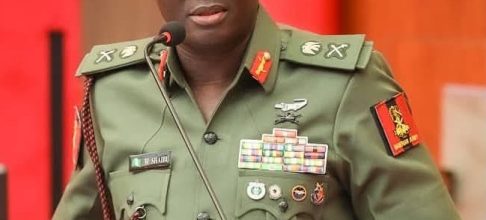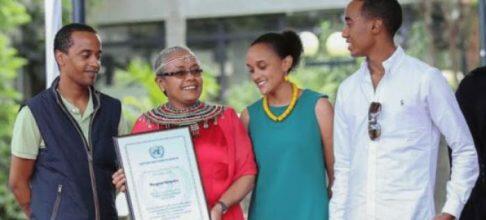Ambassador Fidelis Naanmiap Tapgun, a former Plateau State governor, Nigeria’s Ambassador to Kenya and Director General of Obasanjo/Atiku Presidential Campaign Organisation, in this interview with LEO SOBECHI, traces the genesis of failure of political parties. He said he does not see any future for the coalition, regretting that those leaving the People’s Democratic Party (PDP) worked for its destruction.
‘I Don’t Subscribe To Coalition’
As somebody who has been close to the crucible of politics, how would you trace the progression, or retrogression, so to say, of Nigeria’s democracy in the last 26 years?
Well, I don’t know how to describe this one. This democracy came back immediately after (General Sani) Abacha died, right? General Abdulsalami Abubakar said we should start politics. And the G34, the agitators from all sides, all parts of the country, which had been meeting, in fact, they pressured Abacha for return of democracy. Something happened and Abacha died. Now, this group regrouped as soon as Abdulsalami said politics should start. And this G34 has representation of all parts of this country. And they all went back to their states and decided that a very formidable political party should be formed. So, the PDP was formed as a result of that, and other parties also came up. The difficulty I have seen so far with our political system is the formation of the parties, because it appears there is no ideology in the parties themselves. And, they are not focused on particular issues. The general thing is that every party believes in the welfare of Nigerians. So, if you go to APC or PDP, well, APC came later, but there was APP (All Peoples Party), there was AD (Alliance for Democracy), and so on and so forth. PDP stood out from the beginning. Now, people just jump from one party to another. Now, the reason I’m saying this is because if the parties were really formed on what parties should be, people should belong to a political party, and it will not be easy for them to be moving around. The difficulty I’ve seen with this, in our democracy, is that the parties are not structured in such a way that you remain a member of the party for as long as possible because the people do not own the party. It is the moneybags that own the party. And if the people do not own the party, then the structure of the party is weak. That’s what I’ve seen in all the parties since we started this thing. So, that’s why you see people jump from one party to another. We cannot build democracy on that basis. The parties were then formed, and there was no regulation as to how candidates should emerge. Then, so many things went wrong. Now, if the people do not own the party, and there is no method of leadership selection, then you find all sorts of people coming in. What we have noticed in this country, you will find crooks, everybody just finding his way. Once you have money, you find your way and get elected. That’s the major issue we have. And so, people just jump from one party to the other. We cannot build democracy that way. That is what we have experienced since this democracy came back. So, it’s just fluid as far as I’m concerned. People move from one party to the other any time they like. You are elected on one platform, then in the middle of your tenure, you jump to another party without sanction, without any qualms. And with no sanctions, you don’t bother. We cannot move like that. So, I think this is the major problem we have. The parties themselves were not formed on very solid grounds, meaning that the ownership of the parties was left in the hands of moneybags. And there was no leadership selection process so that you can eliminate unqualified persons, eliminate people that are crooks so that they do not come in and pollute the whole system. So you find that we are just jumping from one place to the other, as far as I can see. I’ve not changed party since we started because I don’t think it is nice for people to just jump ship just because your party failed. We can’t build democracy like that. Some other people made a similar observation in 2015 after the National Conference. Will you suggest a moratorium on elections till Nigeria is able to set a specific template for political progression?
Now, how do you go about that because of the National Assembly? This is the difficulty we have about implementing the 2014 National Conference recommendations. If the resolutions arrived at that conference were implemented, or let’s say three quarters of it were implemented, we would have stabilised the system. Certain things would have been happening now. But the problems we had at that time was the National Assembly itself not accepting that there should be another body that will look at all these things by insisting that they should be the ones doing it. They scuttled the whole idea. We had thought that once that conference ended, (Dr Goodluck) Jonathan was going to take decisions on what he was able to do himself, and the rest of it would be thrown up for a referendum, so that Nigerians would decide. But the National Assembly scuttled it, and nothing was done. Now, you find that the 1999 Constitution we’re using is not a Nigerian, but a military constitution, as far as everybody knows. Changing things inside has been very, very difficult. And unless you change the constitution itself, you cannot do a lot of essential things you need for the country to move forward. Now, the National Assembly is embarking on constitution review, how many times have they been doing this? It would take them the whole century to get these things amended. So, I think until something drastic is done somewhere to change this hold by the National Assembly, I don’t see how we can move forward. Now, this lack of creative leadership, because after the National Conference, or so to say, some people were saying that there were certain issues which the President should have settled through Executive Orders; that did not come. Based on what is currently going on, a lot of people expect that Tinubu would have set the pedestal for this kind of conversation…
Since he (President Tinubu) came in, I know there have been speculations about changing a lot of things. And kites were flown for comments from people. I saw those ones like kites. But I think there is, I don’t want to preempt him, but for me, I think he is one person that will change this thing from what I can see going on. Last week, the Patriots met under Emeka Anyaoku and their major take on this thing is to look at the constitution and rewrite the constitution to Nigerians’ constitution, not the military constitution. And like I said from the beginning, it is the 1999 constitution that has been the bane of our country. And until the constitution is drawn up by Nigerians, by us Nigerians, we’ll still be running into problems. Now, the Patriots have been looking at the whole thing so that they will make recommendations to the President or to the National Assembly for there to be a referendum so that the constitution that will be drawn up will be by Nigerians. I think there’s something in the offing from what I can see from last week. I just suspect there’s something cooking somewhere. But in the current efforts, some schools of thought are calling for a return to the 1963 Republican constitution, as a baseline to do the review of the constitution. How do you think that will address some of the critical issues?
The military came into power in 1966. It was suspended. And that was the constitution that we had the three or four regions. And the four regions were almost semi-autonomous, so to say. But they were relating to the Federal Government harmoniously. Everybody knew their boundaries. And it helped in development, because there was healthy competition among the states, among the regions, so to say. So, for me, I believe in that constitution. And I think the majority of people that want this country to survive and exist and develop the potential we have prefer that constitution instead of what we have now. I think the Patriots are looking at that sort of thing, from what I gathered, because their secretary, Prof. Fapohunda, said something like that in the interview he granted. And if this is what the Patriots have for this country, I think people should support it. But a lot of people were talking also about restructuring. And the question about restructuring is: Is it about political restructuring or economic?
No, it’s restructuring in all aspects, not just political. If you restructure, then you will be going back to what we had in the regions before. Do you understand? The regions would be responsible for certain things, which was defined in the constitution at that time and the federal was responsible for other things. Every region had their areas of focus and the federal had its own. So, this restructuring is not just about political; it is going to be everything, all encompassing, so we can develop at our pace. On the flip side, some people are also questioning this issue of presidential democracy. Would you rather that we return to the parliamentary system?
I have been an advocate of the parliamentary system right from the beginning, because this system we are running today is alien to Nigeria, and it is part of the reason we are not moving forward at all. And I remember in the National Conference, particularly in the committee where I served, I remember that was one of our major recommendations. That we should go back to the parliamentary system, so that we eliminate the one bad thing about the presidential system we are practicing now, where the president is so powerful. Once the president wins the election, he controls everything. He appoints people. It will not help us at all. The parliamentary system is what we stood for, because you cannot be a minister until you are a member of parliament. And if you are a member of parliament and you become a minister, then you have to be accountable to parliament every day of the week, so that people know. Now, with this our presidential system and appointment, the president, the governors, the local government, it is the same thing. When they come to power, they just appoint their friends, people who didn’t work for the party. People who have no grassroots support, and they cannot help the government to progress. They are just there because they need money. They will just appoint them, because the governor or the president wants to favour a friend or a relation; so it’s not helping us at all. For me, I have been an advocate of the parliamentary system right from the start, and I stand by it. It is what is going to help us; look at what is happening in the National Assembly. We have 109 senators, nearly 400 House of Representatives members, and the resources they are draining from this country as allowances, you cannot quantify it, and they don’t want anybody to know. It’s not helping us at all. So, we should go back to the parliamentary system. In the National Assembly, the president or the prime minister faces the opposition every day of the week to give an account of what the government is doing, because you cannot be a minister unless you are elected from your constituency into the House, before you are appointed a minister. So, you should be accountable to the people. Next to that is that a lot of people have associated this presidential democracy with the indiscipline and the ineptitude of political parties. Do you think that this current coalition offers any hope for a stable two-party system?
I cannot see anything in that. For me, I don’t subscribe to it at all, at all. This coalition thing I don’t know. People that say that they are in the coalition, in ADC, and some are still in APC, some are still in PDP, what sort of system are we running? So if, for me, PDP lost an election, another party won. PDP should go back now and sit down and assess themselves, say what made them lose, what caused this failure, what was the reason, and try to rectify it against the next election. But since we failed, nobody has sat down to look at why things went wrong. I don’t think coalition is the solution. As far as I’m concerned, it’s not the solution. I don’t know about you, but this coalition, I don’t know where it is going. For me, I can’t see it taking off. People are talking about it all over, but for me, I’m not convinced that it can do anything to upstage government now. PDP people should go back to PDP, look at the problem that caused us to lose elections and rectify it. APC, go back, SDP, go back. Try and build your own party and fight government for the next election. But this one they are doing is just, from what I hear, everybody is talking, ‘oh, we want to sack or remove the person that is in power’. I think people should sit down, look at what he is doing wrong, criticise it; look at what is going right, praise it; let it move and finish the term and go away. Then people that have failed the election should sit down and look at why they failed and rectify their mistakes and move forward in the next election. That’s how we’ll build over time. But left for me, I don’t subscribe to it at all. I’m not part of it anyway. There was a half-hearted attempt to review why PDP lost the 2015 election, but somewhere along the line, it floundered. I think the failure of that analysis was part of the reason former governor of Sokoto State, Attahiru Bafarawa, decided to opt out of partisan politics. Some people in PDP say that the issue of zoning or power rotation has been the problem. Do you think the party has power to address that?
You see, it is just a few people that are causing this thing. When Obasanjo was leaving office, when we were leaving office, Yar’Adua came to power. I’m just giving an insight from PDP now. When Yar’Adua was elected, the first thing he said was that the party that brought him to power, the PDP, is not the PDP he knew. You understand? So, he said PDP has deteriorated to such a level that he is not going to accept it. That he’s going to set up a committee to find out why the PDP went down so low?
So, he set up the Ekwueme Committee, if you remember, headed by the late Ekwueme. He said we should find out -those of us were in that committee – why the PDP went down so low.
Now, we went round this country. We visited the six geographical zones of this country and took evidence from people who left the party. Some were dormant members of the party. So, we dug them all out, got messages from them, and we documented all these things. Part of the major reason was because the party had been hijacked by people with money. It was only people who had money that dictated what happens in the party. And in all the six geopolitical zones we went, the accusations were against the domineering tendencies of governors, because the governors hijacked the party. The party had no strength in their states. It was the governors that dictated what happens, because they were funding the parties. Do you understand me?
President Yar’Adua was briefed. He said we should make the final report and bring it immediately, because he was going to implement every recommendation. The major points we raised was that the party had been hijacked and that we should go back to membership registration. That PDP must register its members, and members must subscribe to it, so that they can run the parties in their local governments, in the state, and at the federal level. So, that way, we can remove the hands of the governors, the local government chairmen, and the Presidency in party affairs. This was what we did in SDP, if you remember. This was what happened during that period. So, we came back, did all that, and we just made a little calculation. We said even because of the membership we had all over the country, even if people are paying 50 kobo per month, what we realised was enormous. It was in millions. From that, we saw that the party will operate efficiently at the national, to the states, to the local governments, and leave the governors out. So, people will now own the party. They will decide who will become chairman or who will stand election; it is membership that will decide not the governors. So, we brought this back, and it was approved that we should start membership registration immediately. Okwesilieze Nwodo wanted to implement it. The governors ganged-up and removed him from office, because their powers were to be cut short. And that is the problem we have faced all that time till today. You go to the state, the parties are not active; they depend on the governor. It is the governor who gives them money to run their offices. This was not what happened when we were operating SDP in those days. All the parties are like that, so how do you function? How do you progress? The governor sits in his office or lodge and funds the party. If you go for election, it is the person he appoints to contest that will contest the election. The person he appoints, they force him on people. That is why nothing is moving all over the country, nothing. And if we continue like that, we are not going to progress anywhere. So, that’s why I spoke about the structuring of the parties from the beginning. If the parties are not structured in such a way that it is owned by the people themselves, so that the people can decide, then our democracy will continue to be in trouble. When PDP started and when Abdulsalami lifted the ban on politics, the first local government elections we had that year was funded by the people, the local people themselves. So, you go to the wards or the local government, they funded, nominated people and campaigned for them. They paid for the canopies; they entertained people; they paid for everything themselves. That’s how we expected that the people should own the party, because they will decide who contests an election and who doesn’t contest. They know who is who in the local government and who is to be appointed.
Well, I don’t know how to describe this one. This democracy came back immediately after (General Sani) Abacha died, right? General Abdulsalami Abubakar said we should start politics. And the G34, the agitators from all sides, all parts of the country, which had been meeting, in fact, they pressured Abacha for return of democracy. Something happened and Abacha died. Now, this group regrouped as soon as Abdulsalami said politics should start. And this G34 has representation of all parts of this country. And they all went back to their states and decided that a very formidable political party should be formed. So, the PDP was formed as a result of that, and other parties also came up. The difficulty I have seen so far with our political system is the formation of the parties, because it appears there is no ideology in the parties themselves. And, they are not focused on particular issues. The general thing is that every party believes in the welfare of Nigerians. So, if you go to APC or PDP, well, APC came later, but there was APP (All Peoples Party), there was AD (Alliance for Democracy), and so on and so forth. PDP stood out from the beginning. Now, people just jump from one party to another. Now, the reason I’m saying this is because if the parties were really formed on what parties should be, people should belong to a political party, and it will not be easy for them to be moving around. The difficulty I’ve seen with this, in our democracy, is that the parties are not structured in such a way that you remain a member of the party for as long as possible because the people do not own the party. It is the moneybags that own the party. And if the people do not own the party, then the structure of the party is weak. That’s what I’ve seen in all the parties since we started this thing. So, that’s why you see people jump from one party to another. We cannot build democracy on that basis. The parties were then formed, and there was no regulation as to how candidates should emerge. Then, so many things went wrong. Now, if the people do not own the party, and there is no method of leadership selection, then you find all sorts of people coming in. What we have noticed in this country, you will find crooks, everybody just finding his way. Once you have money, you find your way and get elected. That’s the major issue we have. And so, people just jump from one party to the other. We cannot build democracy that way. That is what we have experienced since this democracy came back. So, it’s just fluid as far as I’m concerned. People move from one party to the other any time they like. You are elected on one platform, then in the middle of your tenure, you jump to another party without sanction, without any qualms. And with no sanctions, you don’t bother. We cannot move like that. So, I think this is the major problem we have. The parties themselves were not formed on very solid grounds, meaning that the ownership of the parties was left in the hands of moneybags. And there was no leadership selection process so that you can eliminate unqualified persons, eliminate people that are crooks so that they do not come in and pollute the whole system. So you find that we are just jumping from one place to the other, as far as I can see. I’ve not changed party since we started because I don’t think it is nice for people to just jump ship just because your party failed. We can’t build democracy like that. Some other people made a similar observation in 2015 after the National Conference. Will you suggest a moratorium on elections till Nigeria is able to set a specific template for political progression?
Now, how do you go about that because of the National Assembly? This is the difficulty we have about implementing the 2014 National Conference recommendations. If the resolutions arrived at that conference were implemented, or let’s say three quarters of it were implemented, we would have stabilised the system. Certain things would have been happening now. But the problems we had at that time was the National Assembly itself not accepting that there should be another body that will look at all these things by insisting that they should be the ones doing it. They scuttled the whole idea. We had thought that once that conference ended, (Dr Goodluck) Jonathan was going to take decisions on what he was able to do himself, and the rest of it would be thrown up for a referendum, so that Nigerians would decide. But the National Assembly scuttled it, and nothing was done. Now, you find that the 1999 Constitution we’re using is not a Nigerian, but a military constitution, as far as everybody knows. Changing things inside has been very, very difficult. And unless you change the constitution itself, you cannot do a lot of essential things you need for the country to move forward. Now, the National Assembly is embarking on constitution review, how many times have they been doing this? It would take them the whole century to get these things amended. So, I think until something drastic is done somewhere to change this hold by the National Assembly, I don’t see how we can move forward. Now, this lack of creative leadership, because after the National Conference, or so to say, some people were saying that there were certain issues which the President should have settled through Executive Orders; that did not come. Based on what is currently going on, a lot of people expect that Tinubu would have set the pedestal for this kind of conversation…
Since he (President Tinubu) came in, I know there have been speculations about changing a lot of things. And kites were flown for comments from people. I saw those ones like kites. But I think there is, I don’t want to preempt him, but for me, I think he is one person that will change this thing from what I can see going on. Last week, the Patriots met under Emeka Anyaoku and their major take on this thing is to look at the constitution and rewrite the constitution to Nigerians’ constitution, not the military constitution. And like I said from the beginning, it is the 1999 constitution that has been the bane of our country. And until the constitution is drawn up by Nigerians, by us Nigerians, we’ll still be running into problems. Now, the Patriots have been looking at the whole thing so that they will make recommendations to the President or to the National Assembly for there to be a referendum so that the constitution that will be drawn up will be by Nigerians. I think there’s something in the offing from what I can see from last week. I just suspect there’s something cooking somewhere. But in the current efforts, some schools of thought are calling for a return to the 1963 Republican constitution, as a baseline to do the review of the constitution. How do you think that will address some of the critical issues?
The military came into power in 1966. It was suspended. And that was the constitution that we had the three or four regions. And the four regions were almost semi-autonomous, so to say. But they were relating to the Federal Government harmoniously. Everybody knew their boundaries. And it helped in development, because there was healthy competition among the states, among the regions, so to say. So, for me, I believe in that constitution. And I think the majority of people that want this country to survive and exist and develop the potential we have prefer that constitution instead of what we have now. I think the Patriots are looking at that sort of thing, from what I gathered, because their secretary, Prof. Fapohunda, said something like that in the interview he granted. And if this is what the Patriots have for this country, I think people should support it. But a lot of people were talking also about restructuring. And the question about restructuring is: Is it about political restructuring or economic?
No, it’s restructuring in all aspects, not just political. If you restructure, then you will be going back to what we had in the regions before. Do you understand? The regions would be responsible for certain things, which was defined in the constitution at that time and the federal was responsible for other things. Every region had their areas of focus and the federal had its own. So, this restructuring is not just about political; it is going to be everything, all encompassing, so we can develop at our pace. On the flip side, some people are also questioning this issue of presidential democracy. Would you rather that we return to the parliamentary system?
I have been an advocate of the parliamentary system right from the beginning, because this system we are running today is alien to Nigeria, and it is part of the reason we are not moving forward at all. And I remember in the National Conference, particularly in the committee where I served, I remember that was one of our major recommendations. That we should go back to the parliamentary system, so that we eliminate the one bad thing about the presidential system we are practicing now, where the president is so powerful. Once the president wins the election, he controls everything. He appoints people. It will not help us at all. The parliamentary system is what we stood for, because you cannot be a minister until you are a member of parliament. And if you are a member of parliament and you become a minister, then you have to be accountable to parliament every day of the week, so that people know. Now, with this our presidential system and appointment, the president, the governors, the local government, it is the same thing. When they come to power, they just appoint their friends, people who didn’t work for the party. People who have no grassroots support, and they cannot help the government to progress. They are just there because they need money. They will just appoint them, because the governor or the president wants to favour a friend or a relation; so it’s not helping us at all. For me, I have been an advocate of the parliamentary system right from the start, and I stand by it. It is what is going to help us; look at what is happening in the National Assembly. We have 109 senators, nearly 400 House of Representatives members, and the resources they are draining from this country as allowances, you cannot quantify it, and they don’t want anybody to know. It’s not helping us at all. So, we should go back to the parliamentary system. In the National Assembly, the president or the prime minister faces the opposition every day of the week to give an account of what the government is doing, because you cannot be a minister unless you are elected from your constituency into the House, before you are appointed a minister. So, you should be accountable to the people. Next to that is that a lot of people have associated this presidential democracy with the indiscipline and the ineptitude of political parties. Do you think that this current coalition offers any hope for a stable two-party system?
I cannot see anything in that. For me, I don’t subscribe to it at all, at all. This coalition thing I don’t know. People that say that they are in the coalition, in ADC, and some are still in APC, some are still in PDP, what sort of system are we running? So if, for me, PDP lost an election, another party won. PDP should go back now and sit down and assess themselves, say what made them lose, what caused this failure, what was the reason, and try to rectify it against the next election. But since we failed, nobody has sat down to look at why things went wrong. I don’t think coalition is the solution. As far as I’m concerned, it’s not the solution. I don’t know about you, but this coalition, I don’t know where it is going. For me, I can’t see it taking off. People are talking about it all over, but for me, I’m not convinced that it can do anything to upstage government now. PDP people should go back to PDP, look at the problem that caused us to lose elections and rectify it. APC, go back, SDP, go back. Try and build your own party and fight government for the next election. But this one they are doing is just, from what I hear, everybody is talking, ‘oh, we want to sack or remove the person that is in power’. I think people should sit down, look at what he is doing wrong, criticise it; look at what is going right, praise it; let it move and finish the term and go away. Then people that have failed the election should sit down and look at why they failed and rectify their mistakes and move forward in the next election. That’s how we’ll build over time. But left for me, I don’t subscribe to it at all. I’m not part of it anyway. There was a half-hearted attempt to review why PDP lost the 2015 election, but somewhere along the line, it floundered. I think the failure of that analysis was part of the reason former governor of Sokoto State, Attahiru Bafarawa, decided to opt out of partisan politics. Some people in PDP say that the issue of zoning or power rotation has been the problem. Do you think the party has power to address that?
You see, it is just a few people that are causing this thing. When Obasanjo was leaving office, when we were leaving office, Yar’Adua came to power. I’m just giving an insight from PDP now. When Yar’Adua was elected, the first thing he said was that the party that brought him to power, the PDP, is not the PDP he knew. You understand? So, he said PDP has deteriorated to such a level that he is not going to accept it. That he’s going to set up a committee to find out why the PDP went down so low?
So, he set up the Ekwueme Committee, if you remember, headed by the late Ekwueme. He said we should find out -those of us were in that committee – why the PDP went down so low.
Now, we went round this country. We visited the six geographical zones of this country and took evidence from people who left the party. Some were dormant members of the party. So, we dug them all out, got messages from them, and we documented all these things. Part of the major reason was because the party had been hijacked by people with money. It was only people who had money that dictated what happens in the party. And in all the six geopolitical zones we went, the accusations were against the domineering tendencies of governors, because the governors hijacked the party. The party had no strength in their states. It was the governors that dictated what happens, because they were funding the parties. Do you understand me?
President Yar’Adua was briefed. He said we should make the final report and bring it immediately, because he was going to implement every recommendation. The major points we raised was that the party had been hijacked and that we should go back to membership registration. That PDP must register its members, and members must subscribe to it, so that they can run the parties in their local governments, in the state, and at the federal level. So, that way, we can remove the hands of the governors, the local government chairmen, and the Presidency in party affairs. This was what we did in SDP, if you remember. This was what happened during that period. So, we came back, did all that, and we just made a little calculation. We said even because of the membership we had all over the country, even if people are paying 50 kobo per month, what we realised was enormous. It was in millions. From that, we saw that the party will operate efficiently at the national, to the states, to the local governments, and leave the governors out. So, people will now own the party. They will decide who will become chairman or who will stand election; it is membership that will decide not the governors. So, we brought this back, and it was approved that we should start membership registration immediately. Okwesilieze Nwodo wanted to implement it. The governors ganged-up and removed him from office, because their powers were to be cut short. And that is the problem we have faced all that time till today. You go to the state, the parties are not active; they depend on the governor. It is the governor who gives them money to run their offices. This was not what happened when we were operating SDP in those days. All the parties are like that, so how do you function? How do you progress? The governor sits in his office or lodge and funds the party. If you go for election, it is the person he appoints to contest that will contest the election. The person he appoints, they force him on people. That is why nothing is moving all over the country, nothing. And if we continue like that, we are not going to progress anywhere. So, that’s why I spoke about the structuring of the parties from the beginning. If the parties are not structured in such a way that it is owned by the people themselves, so that the people can decide, then our democracy will continue to be in trouble. When PDP started and when Abdulsalami lifted the ban on politics, the first local government elections we had that year was funded by the people, the local people themselves. So, you go to the wards or the local government, they funded, nominated people and campaigned for them. They paid for the canopies; they entertained people; they paid for everything themselves. That’s how we expected that the people should own the party, because they will decide who contests an election and who doesn’t contest. They know who is who in the local government and who is to be appointed.
But the governors hijacked it and took it all over and that’s what you have all over the country today. We cannot progress like that, we cannot.


